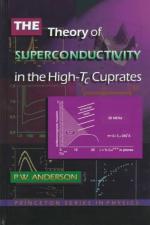|
This section contains 653 words (approx. 3 pages at 300 words per page) |

|
How Superconductors Work
Summary: An explanation of superconductors and how electrons move so as to create long-lasting electrical current without energy loss. High-temperature and low-temperature superconductors are described.
A superconductor encounters no electrical resistance and so then can carry around large amounts of electrical current for extremely long periods of time and still not lose its energy. Having no resistance means that electrons can travel through superconductors freely.
In a metal, atoms are structured in a lattice arrangement, where by electrons can move loosely between the atoms. As they move they collide with the atoms and lose their energy. Where as in superconductors, the electrons move between the atoms in pairs and don't lose their energy.
When a material changes to a superconductor state from a normal electrical conductivity state, it occurs at a certain temperature. This temperature is called the critical transition temperature (Tc). The critical temperature differs depending on the material.
Superconductors have a very strong ability to repel a magnetic field. If there is the presence of a strong magnetic field near a...
|
This section contains 653 words (approx. 3 pages at 300 words per page) |

|


